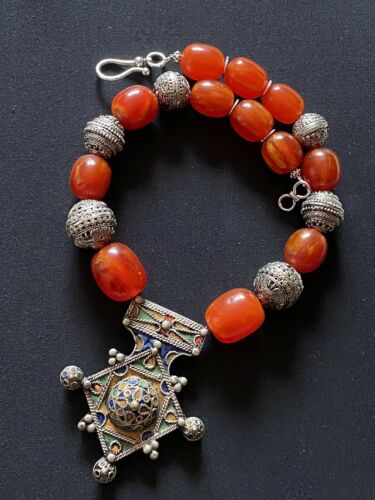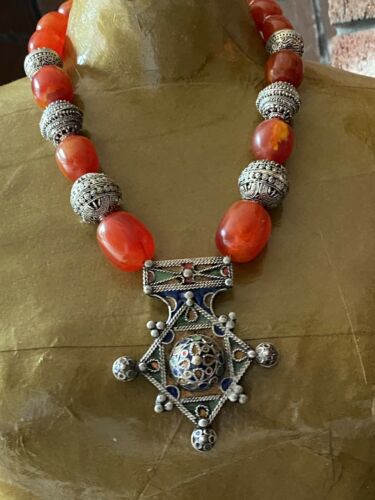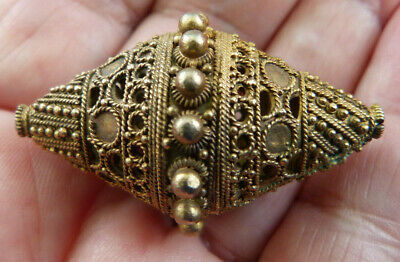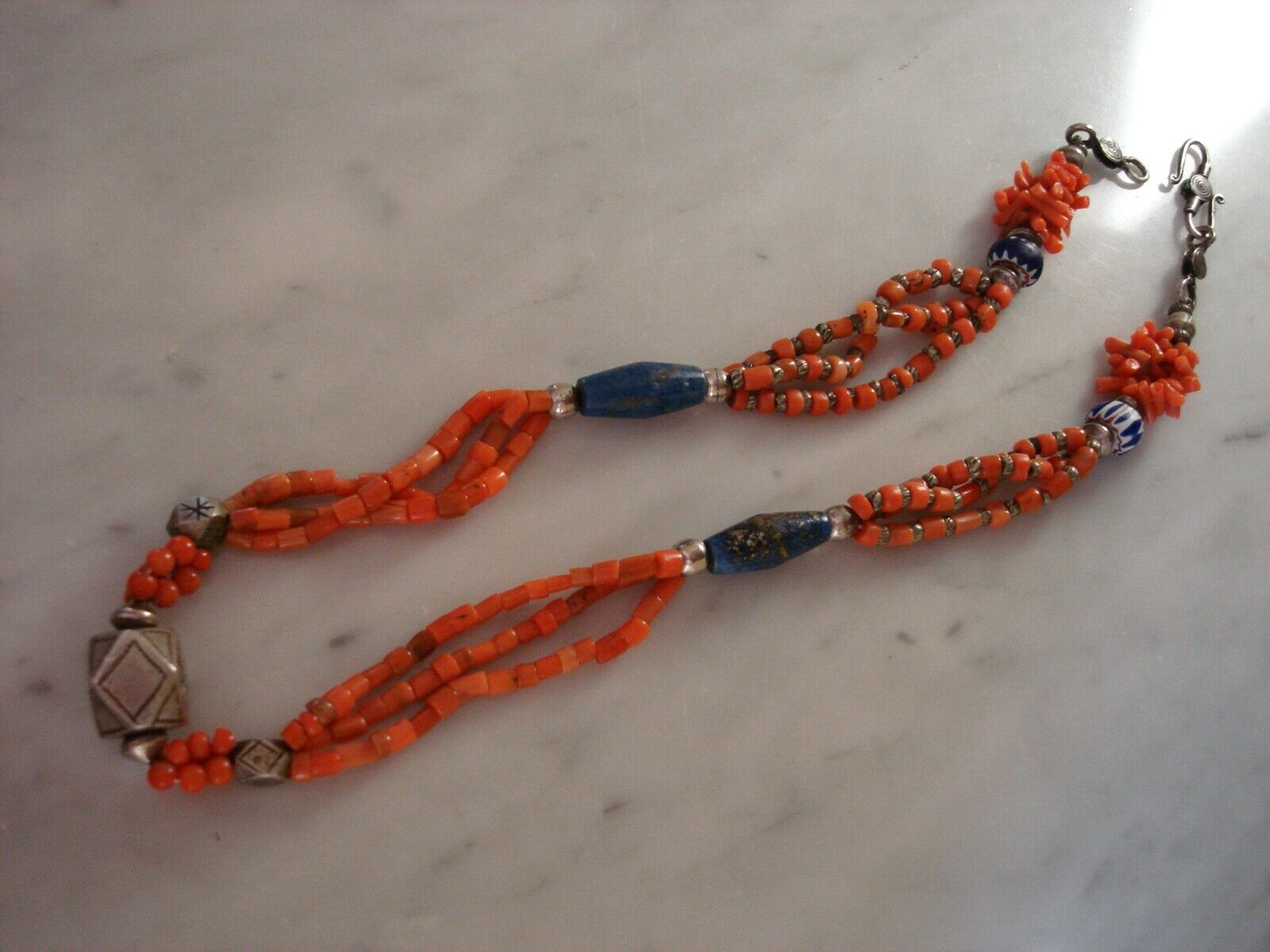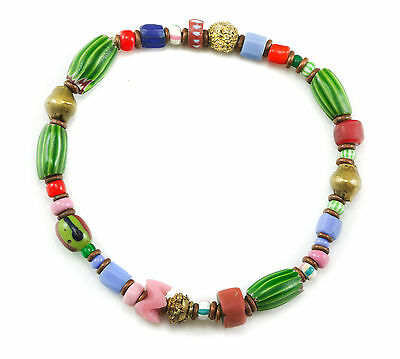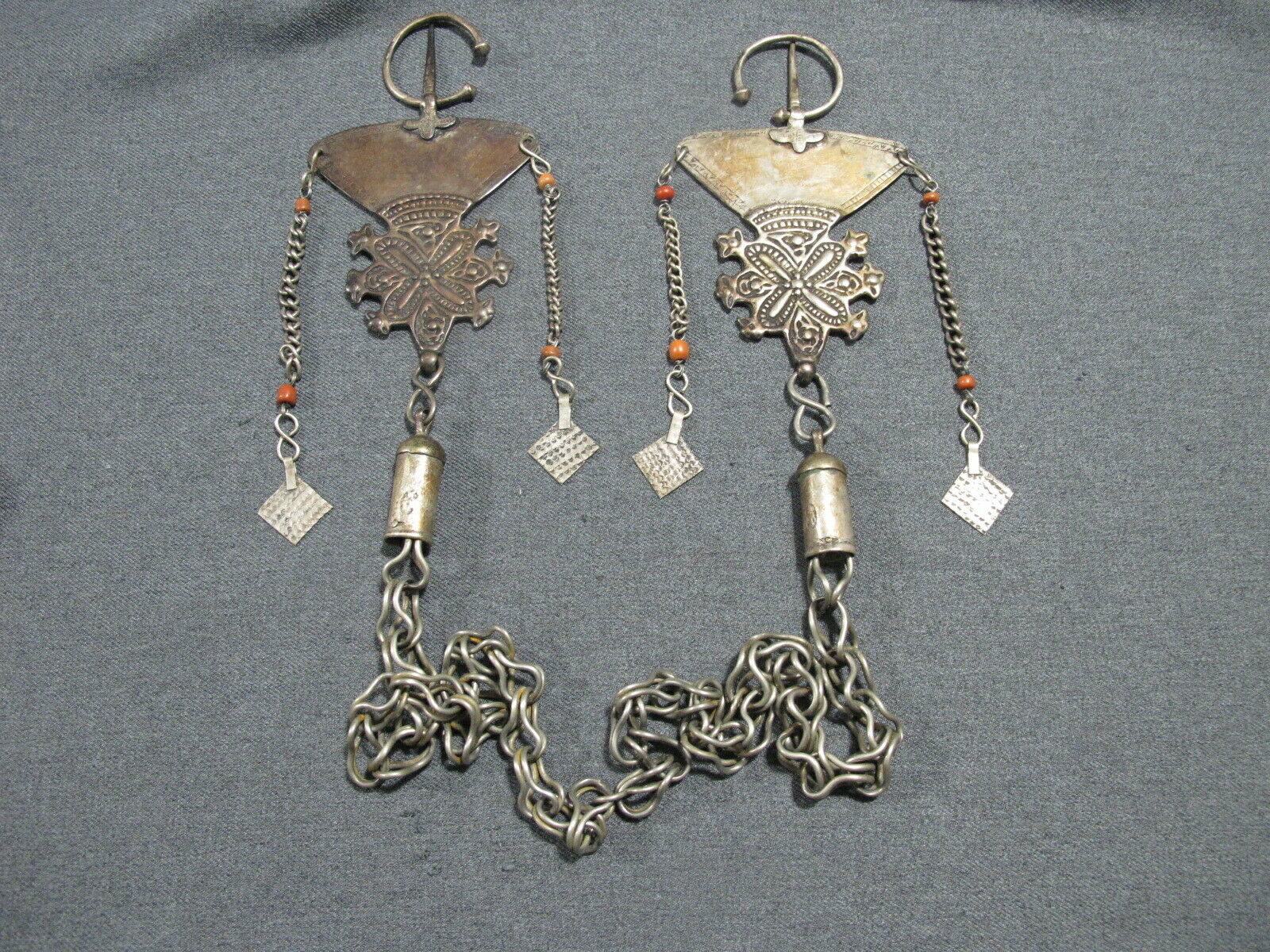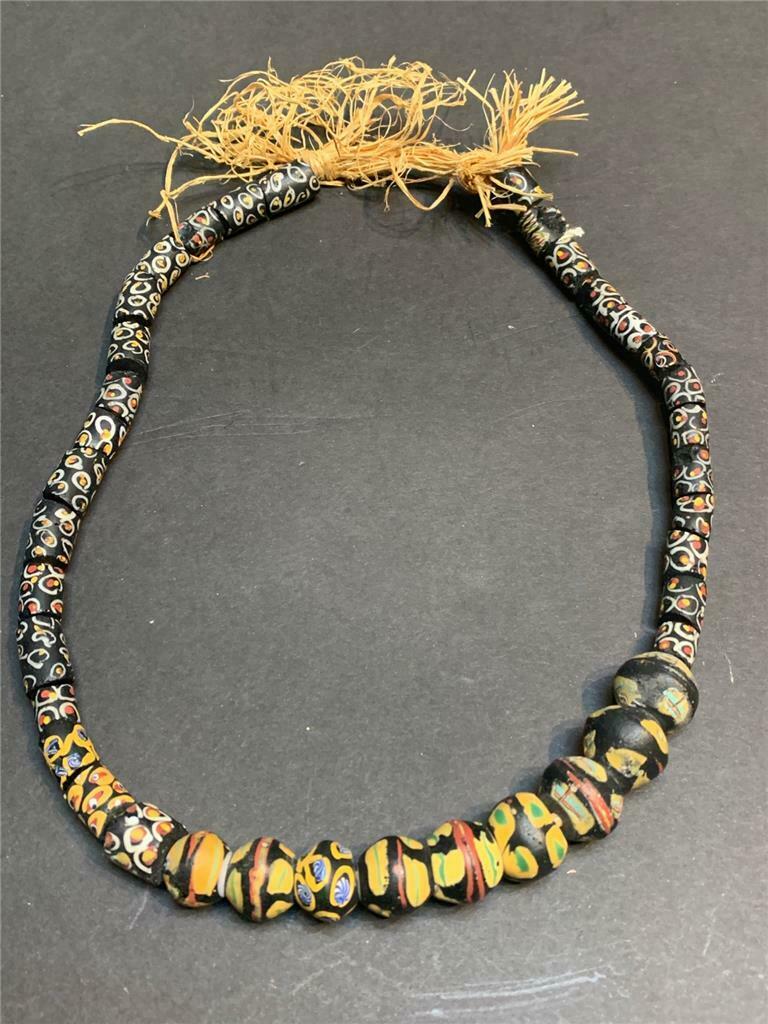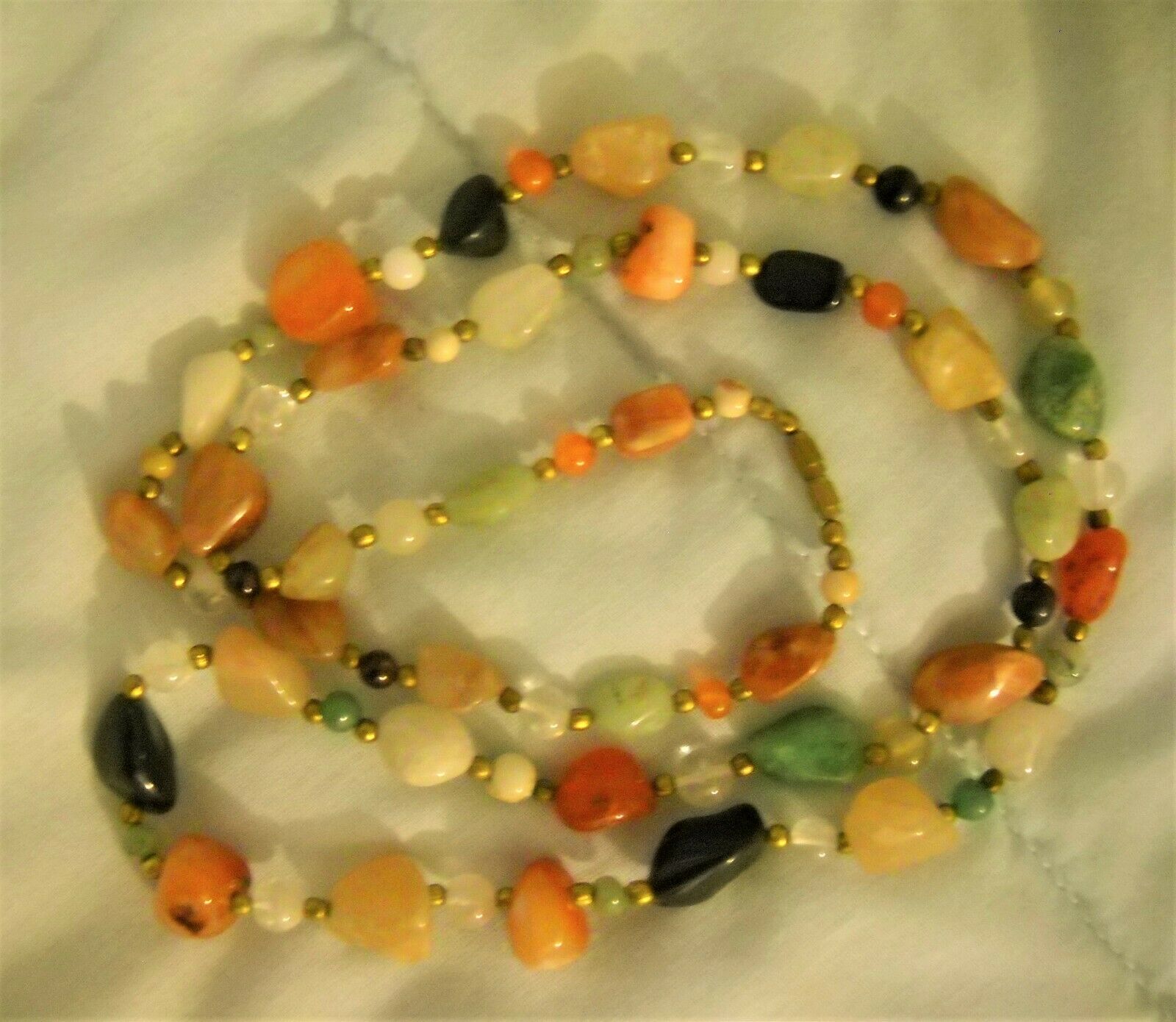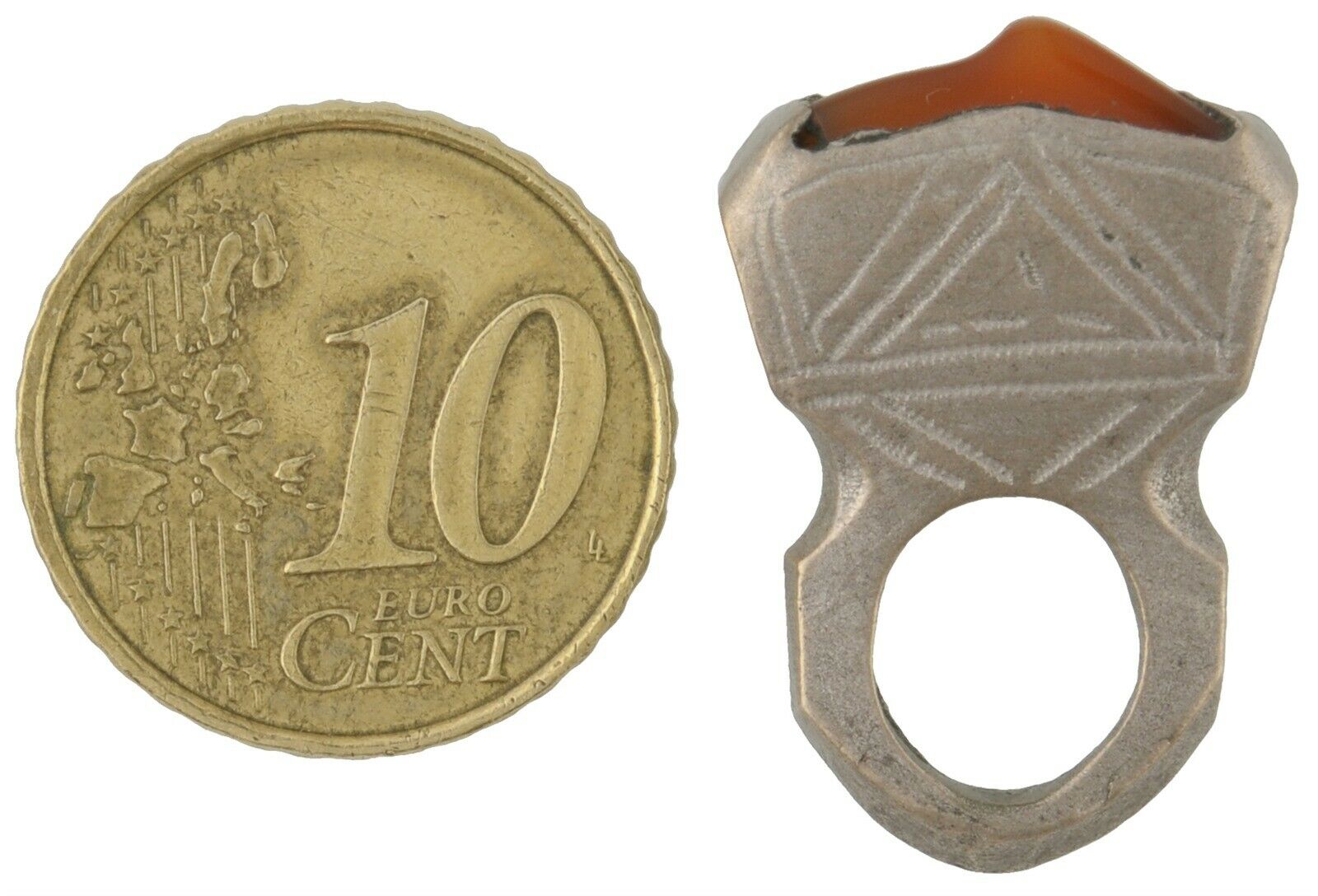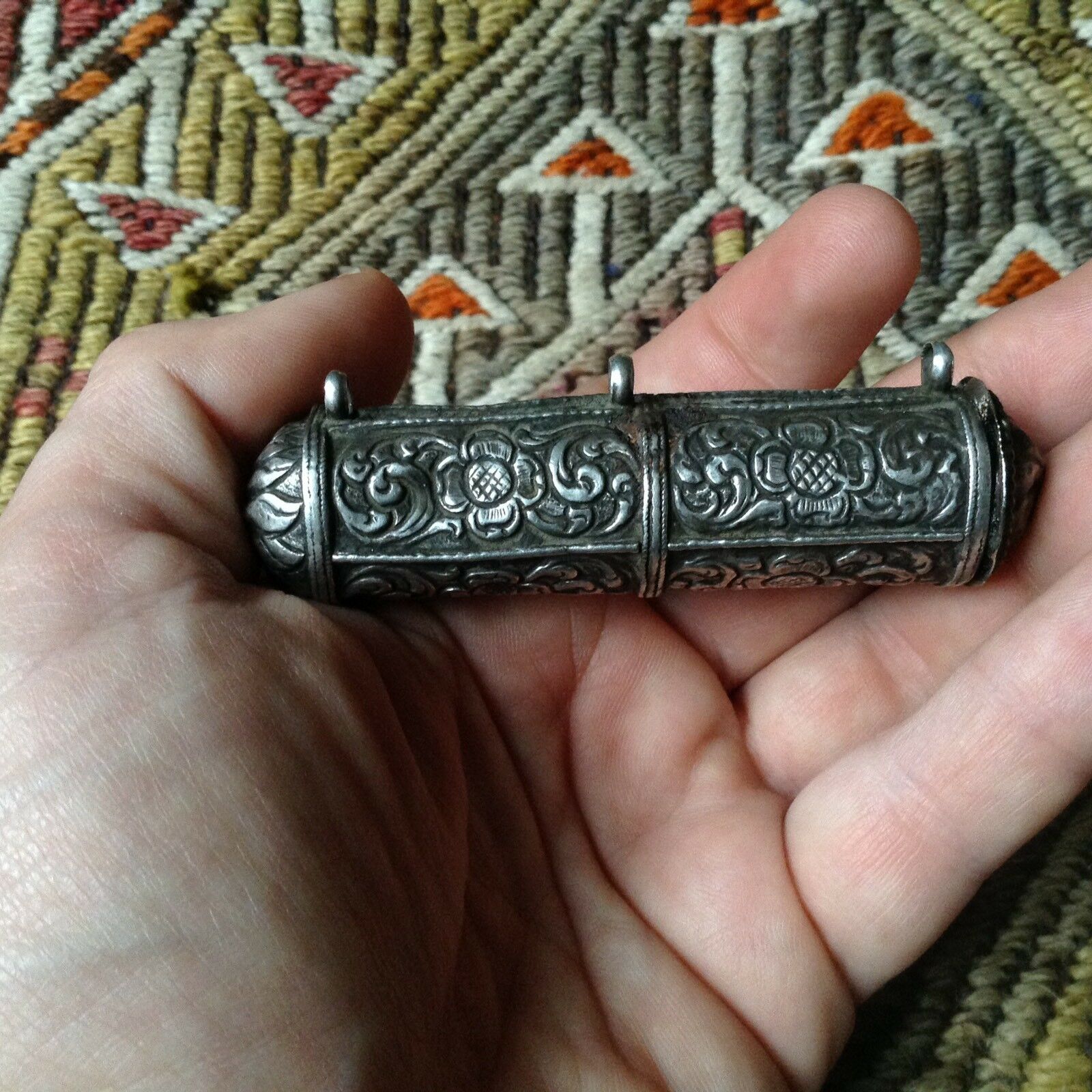-40%
Chunky Boghdad enameled Berber southern cross & amber Tuareg Morrocan necklace.
$ 93.45
- Description
- Size Guide
Description
Chunky Boghdad enameled Berber southern cross & handmade resin amber Tuareg silver beaded Morrocan necklace.Huge moroccan silver enameled Berber Boghdad southern cross pendant measuring approximately 3.5” in height by 3” in width.
Intricate enamel green, orange, blue and red design details.
6 large graduated handmade filigree moroccan silver beads measuring from 30mm to 20mm.
Multiple graduated handmade resin amber beads measuring approximately from 35mm to 25mm.
Large Tibetan silver hook clasp closure.
This one of a kind huge and bold statement necklace measures 22” in total length plus the Southern cross length.
Morrocan Boghdad berber Tuareg Crosses:
They derived from the Egyptian Ankh symbol from which would be derived the carteginese symbol of the Goddess Tanit and, finally, the Tuareg Crosses.
They are a sex symbol: especially in Agades , Zinder and In Gall crosses is evident the presence of two elements, which can be linked to a stylized depiction of the two sex symbols: the tip, male symbol, and the ring, the symbol of women.
They are said to protect from the evil eye: in the form of several types of crosses and in the decoration of almost all types appears the presence of triangular elements that constitute the representation more stylized of apotropaic eye.
Amber unites the energizing force of the sun with the grounding, transmutive properties of earth. A powerful yet gentle healer and cleanser, Amber draws out and transmutes negative energy of all kinds on all levels. Amber aids in physical self-healing, emotional healing of depression, and environmental clearing.
Amber also aids in the manifestation of ideas to reality. The life force trapped within Amber promotes fertility, and its protective and environmental clearing properties make it a good stone to use to prepare a healing or birthing room.
The Berbers or Imazighen (‘Free people’; plural of Amazigh) are the original inhabitants of North Africa. They speak a number of related languages and share a common cultural heritage. Most Berbers nowadays live in Morocco, Algeria, Tunisia, Libya, Mali, Mauritania and Niger.
In Berber culture, jewelry has a symbolic and mythical meaning besides their practical and ornamental function, as they are used as charms and talismans to protect against evil spirits and influences. In addition, acquiring jewelry has an economic meaning. An Amazigh woman’s jewelry is her private property. She may buy, and then later sell jewelry to support her family in dire economic times. With the money she might also buy cattle or land. Smart commercial use makes women apt family bankers.
Berbers call themselves some variant of the word i-Mazigh-en (singular: a-Mazigh), possibly meaning "free people" or "noble men". The name probably had its ancient parallel in the Roman and Greek names for Berbers, Mazices.
The berber language (Tamazight) is one of the oldest languages of humanity. Nowadays, it is spoken by the people of North Africa , Egyptian oasis of Siwa and the Touaregs in the Sahara (desert).
From Central Atlas Tamazight
ⴰⵎⴰⵣⵉⵖ
(amazi
ɣ
). From the active participle
ⴰⵎ
(am) and
ⴰⵣⵉⵖ
(azi
ɣ
), whose meaning is unknown but is possibly related to "aze" ("to be strong" in Taznatit), or perhaps "je
ɣ
e
ɣ
" ("to be brave" in Tamasheq); z and j frequently swap out in The Berber are the indigenous people of North Africa, west of the Nile Valley. Many Berbers call themselves some variant of the word Imazighen(singular: Amazigh), possibly meaning "free people" or "free and noble men". The word has probably an ancient parallel in the Roman name for some of the Berber, "Mazices".
The name Berber comes from the name given to this people by the Romans, meaning barbarians. The history of the Berber people in northern Africa is both extensive and diverse. Their oldest ancestors settled in the East of Egypt.
